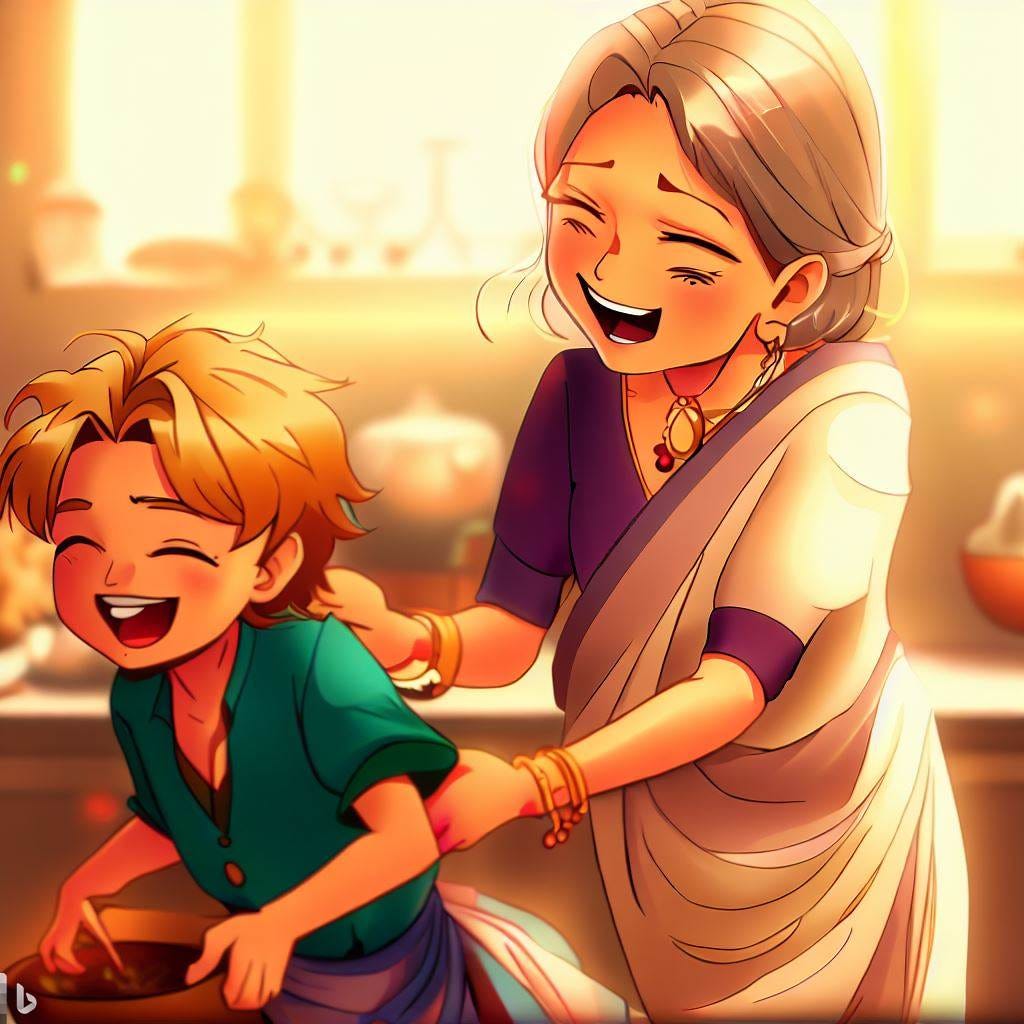#06: From Mundane to Meaningful
How phones and trains helped me be a little more empathetic to the female experience.
Hello Dear Reader,
A few hours ago, I finally overcame my hesitation and started listening to a podcast episode that might be longer than many audiobooks - Episode 303 of The Seen and The Unseen with Nikhil Taneja.
I assume that the episode will lead me down multiple rabbit holes, and I’ll probably end up talking about a lot of them here. However, the first one actually was the revelation about how improved communication and transportation technologies put me on a path towards greater empathy for the women, than I would have assumed otherwise.
To set the context, I grew up in a joint family in post-1990s Pandit-exodus Kashmir, where the terror threat and the experiences of my family and community meant that I was not really allowed to roam out of my home until my late teenage years. I spent way too much time at home, and my mother was more present than my father. Moreover, being the elder child, I formed a budding friendship with my mother during my formative years.
Being close to my mom meant that in my early childhood, especially the age when you are more impressionable, I’d help out my mother in household chores and listen to her intently. She would often stop me from washing dishes or cleaning up, asking me to focus on studies. However, she never did this because I was a boy.
On the contrary, as I grew up and started disliking doing chores, she’d talk about the importance of being self sufficient and an equal contributor in household chores, giving examples of my elder cousins who were either married with working wives or lived in hostels and how they had to take care of everything on their own.
Back then, I didn't realize it, but perhaps this laid the intellectual foundation that later led me towards feminism. Although I don't identify as a feminist now, preferring a more dispassionate view of justice and equality, I was an ardent feminist in college.
But what do trains and phones have to do with it, you might ask? Well, this is where the metaphorical light bulb turned on for me. Due to the 1990s exodus, all our relatives lived outside of Kashmir, and my mother and I would spend our spring or autumn months visiting my aunts rather than visiting them all throughout the year in short bursts. During these visits, my mother got to experience their lives more fully and deeply.
Similarly, as mobile phones made a debut, landline calls became dirt cheap, and we started having long conversations all year round, moving from periodic important events to mundane everyday details of increasingly cosmopolitan life (outside Kashmir) that my aunts would share with my mother. Based on that, my mother would coach me to prepare better for life.
This sharing of experiences gave me a distant yet empathetic view into the lives of women; my aunts, my married and unmarried sisters, my sisters-in-law, and so on. Had it not been for these slightly unique circumstances, I wonder if I would have been exposed to the female perspective the way I have been, especially at that young age, and how that would have shaped my outlook in life.
Trains and phones facilitated communication at an unprecedented scale, and as communication increased, the nature of information conveyed changed from the important to the mundane.
But the conversations becoming mundane was not a bad thing. Sure, talking on the phone for hours about your day might seem wasteful as compared to a rare phone call booked to convey important news, but as we start talking about mundane things, we move on from sharing information to sharing experiences.
When trains began in pre-independence India, they triggered a social renaissance and gave a major boost to the Independence movement as people could visit their country and gather experiences that eventually bonded them together, resulting in the intensification of efforts to throw out the British.
Similarly, the long phone calls facilitated by the telecom revolution helped my mom gain the perspective that she perhaps wouldn't have otherwise, and I definitely wouldn't have gotten raised in a household with all brothers and the nearest sister being 800 KM away.
Taking this a step further, I wonder what social revolution we have in store for the next 5-10 years given the prevalence of video calling. I'm tempted to think about the widespread political/ethnic/religious polarization, but I doubt that's THE answer.
As new technologies and methods of communication develop, we must remain aware of how they can both connect and disconnect us from each other. While video calling may offer us more intimate connections with those far away, it is important that we do not lose sight of the value of mundane conversations and sharing experiences with those closest to us.
Apologies dear reader, if this post was self-indulgent. I usually talk about broader issues from an outsider’s lens, but when I started on the episode, the introduction nudged me towards a more contemplative mind space and while I expected (and still do) the episode to make me examine my relationship with my father (which too has undergone a sea of change, especially an appreciation of his views i don’t completely endorse), somehow I ended up reminiscing about those memories where it is me and my mother: friends, comrades and perhaps gurus to one another.
Cheers to all the moms out there!
Suggested Links:
Podcast Episode: Episode 303: The Loneliness of the Indian Man


